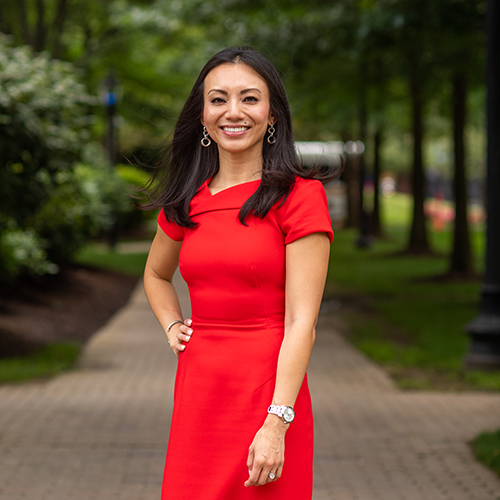Are Diversity, Equity, and Inclusion Initiatives Helping Workers—or Dividing Them?
BU researchers find few workplace DEI programs robustly track their impact, but that successful efforts have a handful of elements in common

Image by cienpies/iStock
Are Diversity, Equity, and Inclusion Initiatives Helping Workers—or Dividing Them?
BU researchers find few workplace DEI programs robustly track their impact, but that successful efforts have a handful of elements in common
Diversity, equity, and inclusion (DEI) programs have failed. Or at least that was the claim of Texas lawmaker Brandon Creighton, when he introduced a bill that would ban DEI offices and training programs at public universities. Diversity was an important aim, the state senator said, but DEI programs have “often worked against the true goal of diversity and equality, only furthering divides and creating sometimes a chilling effect on open dialogue.” The bill, which was passed into law this year and becomes effective January 2024, is one of dozens around the country clamping down on DEI initiatives in education.
DEI isn’t only endangered on college campuses, though. Some corporations have cut back on their commitments, too, paring down dedicated equity-focused positions—many only founded in the aftermath of the 2020 murders of Ahmaud Arbery, Breonna Taylor, and George Floyd—in the face of political opposition or tightening budgets.
One issue for those who want to make the case for keeping—even expanding—diversity programs is a lack of evidence pointing to their impact. In a new study published in Translational Behavioral Medicine, Boston University researchers found very few workplace DEI initiatives have been tracked or monitored with peer-reviewed studies. After conducting a systematic review of research on DEI and antiracism trainings between 2000 and 2022, they discovered many studies only followed limited one-time trainings, measured results with less than 100 people, or didn’t have control groups—giving them no comparison between people who attended a workshop and those who didn’t.

“Most of the studies didn’t utilize randomized designs, which are the strongest studies, and most also had majority female participants,” making it hard for researchers to pull conclusions that apply to a wide population, says Monica Wang, a study coauthor and BU School of Public Health associate professor of community health sciences.
But from the handful of robust studies, the researchers did spot some patterns that marked out successful DEI programs, allowing them to make recommendations for organizations and researchers, including replacing one-and-done trainings with longitudinal programs, using curricula that go beyond knowledge to sharing skills for implementing change, and examining impact with validated assessments.
“Trainings that were grounded in theory, those tended to have more significantly improved outcomes than those that only used a single session training or that weren’t grounded in theory at all,” says Wang. “It’s encouraging to see these trends, even though the sample size is small.”
(For those wondering, BU’s Diversity & Inclusion team offers regular learning events, customized training and workshops, self-guided education, and more.)
The Brink talked with Wang about why we know so little about what works when it comes to DEI initiatives, the opposition to antiracism efforts, and how focusing on inclusion could improve employee health and retention.
Q&A
with Monica Wang
The Brink: Many organizations have been doing DEI work for decades—with many more starting initiatives in the wake of George Floyd’s murder—yet it seems we don’t really have a comprehensive idea of what works and what doesn’t. Why is that?
Wang: Well, I’m not too surprised that we don’t know that much. Historically, this kind of work hasn’t been valued or prioritized as a research topic or an organizational focus, and so there have been limited resources and support to conduct this type of work, and even less so to evaluate it rigorously. It also hasn’t always been an area of priority for publication in peer-reviewed journals, so that serves as another barrier.
The Brink: That academic gap feels like a big problem given the amount of pushback on DEI initiatives.
Wang: One path forward is really to invest in rigorous evaluation, so that we can learn from what we have done in the past and don’t keep investing in one-time online trainings that might sound nice in theory, or might change knowledge or attitudes in the short term, but over time, don’t change much. It’s a disservice to invest in these kinds of trainings, but then not to have more sustainable or longitudinal impact. And that’s the goal of most organizations—they want to create a more inclusive workplace environment.
The Brink: Despite the gaps in our knowledge, are there certain things that successful approaches seem to have in common?
Wang: Yes. We know that one-time trainings that only target knowledge and awareness are not going to be as effective as longitudinal trainings that focus not only on defining concepts or touching upon different kinds of topics on the surface level, but also really provide additional support, training, and skills. Whether that’s how to navigate challenging conversations, how to demonstrate empathy and cultural humility—those kinds of skills are ones that people can take with them over the course of their career, and they can build on them over time. One other limitation I see is organizations will start and stop with diversity. I would actually flip it and say, start with inclusion. And when I say inclusion, I’m talking about engaging individuals or groups who have been historically excluded from decision-making or activities, and in a way that distributes and shares access to opportunities and resources. And if you start with inclusion, that can drive equity, and it can also encourage diversity. It’s a more strategic way to focus on DEI and start asking ourselves, who’s at the table and who’s missing when decisions are made? And have we asked ourselves and others where our blind spots might be?
The Brink: Which companies or organizations are doing a good job when it comes to DEI work?
Wang: The Groundwater Approach by the Racial Equity Institute. They have done a really good job at meeting with organizations from different sectors, and they built in a practical understanding of what structural racism is, and how different entities—whether or not they work in racial justice or policy—can, within their mission and their structure, start thinking about ways in which to promote racial and social equity and justice. They do a great job at providing more longitudinal trainings for different organizations.
The Brink: Many have argued that DEI initiatives are an unnecessary and damaging waste of time, overly political, or a distraction from what an organization should be doing, whether that’s selling a product or educating young people. What’s the case for keeping them?
Wang: In the past few years, we’ve seen a number of organizations who have pledged both to invest in DEI and to also prioritize employee health. But I’ve seen very few address the two as interconnected, and they’re very much related. I think there’s a case for synchronizing those efforts. Right now, what we’re seeing is a lot of organizations putting them into two different silos, but we know from the research that experiencing workplace discrimination is directly associated with mental and physical health. Those who experience discrimination are more likely to have depression, anxiety, post-traumatic stress, and disruptive changes in blood pressure and sleep. We also know that discrimination contributes to job-related stress and burnout, including intent to quit. So, if we’re thinking about recruitment and retention and the overall health of an organization, creating inclusive and equitable work environments can actually facilitate success in those outcomes, as well. Regardless of the evolving dialogue, the principles that DEI focuses on are very relevant for organizations to create workplaces that are sustainable and equitable.
The Brink: How does this fit with your other research?
Wang: I’ll tell you a little bit of a personal story, and why I got into the work that I do. I was born in China and I emigrated to the US when I was four. I lived in Boston, and my parents, like many other immigrants, were focused on finding a place where they could build more economic security and they were looking at education as a great equalizer. They stumbled across METCO, which is one of the longest-standing school desegregation programs in the country, so from elementary through high school, I lived in Roslindale and took the bus to Belmont. The neighborhoods were completely different—racially, economically, environmentally—even though they were only 10 miles apart. I noticed that the health concerns that my peers in Boston had were different than the health concerns that my peers in Belmont had. It wasn’t until I went to undergrad and grad school that I learned about redlining and racial residential segregation that created economically, socially, and racially disparate environments. That was the catalyst for my wanting to be involved in community health and health equity.
We know that employment, housing, and transportation are all related to health. My work is unpacking those larger structural, macro-level factors and then encouraging people to make the connections and coming up with intervention approaches or strategies to promote more equity.
The Brink: What’s one thing you’d like everyone reading this to take away from your latest paper?
Wang: Transformational DEI and antiracism work is a marathon, it’s not a sprint. Having longer-term trainings and really embedding DEI into your organizational strategy at large, that’s the way we can build on our knowledge and skills over time and have lasting change.
This interview was edited for length and clarity.
Wang’s research is supported, in part, by the National Institutes of Health’s National Institute of Diabetes and Digestive and Kidney Diseases.

Comments & Discussion
Boston University moderates comments to facilitate an informed, substantive, civil conversation. Abusive, profane, self-promotional, misleading, incoherent or off-topic comments will be rejected. Moderators are staffed during regular business hours (EST) and can only accept comments written in English. Statistics or facts must include a citation or a link to the citation.